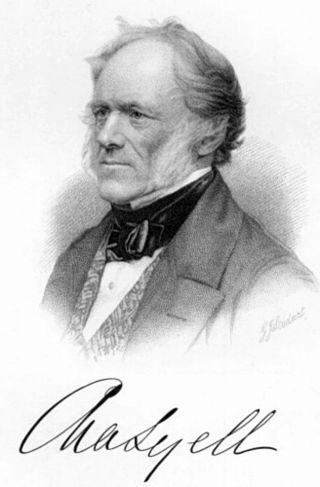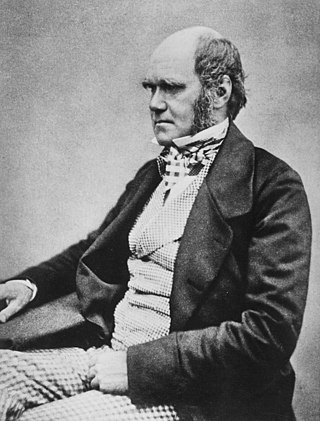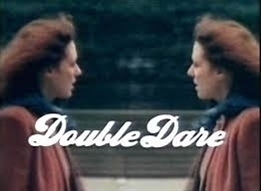Related Research Articles

Sir Charles Lyell, 1st Baronet, was a Scottish geologist who demonstrated the power of known natural causes in explaining the earth's history. He is best known today for his association with Charles Darwin and as the author of Principles of Geology (1830–33), which presented to a wide public audience the idea that the earth was shaped by the same natural processes still in operation today, operating at similar intensities. The philosopher William Whewell dubbed this gradualistic view "uniformitarianism" and contrasted it with catastrophism, which had been championed by Georges Cuvier and was better accepted in Europe. The combination of evidence and eloquence in Principles convinced a wide range of readers of the significance of "deep time" for understanding the earth and environment.

The Omphalos hypothesis is one attempt to reconcile the scientific evidence that the Earth is billions of years old with a literal interpretation of the Genesis creation narrative, which implies that the Earth is only a few thousand years old. It is based on the religious belief that the universe was created by a divine being, within the past six to ten thousand years, and that the presence of objective, verifiable evidence that the universe is older than approximately ten millennia is due to the creator introducing false evidence that makes the universe appear significantly older.

Philip Henry Gosse, known to his friends as Henry, was an English naturalist and populariser of natural science, an early improver of the seawater aquarium, and a painstaking innovator in the study of marine biology. Gosse created and stocked the world's first public marine aquarium at London Zoo in 1853, and coined the term "aquarium" when he published the first manual, The Aquarium: An Unveiling of the Wonders of the Deep Sea, in 1854. His work was the catalyst for an aquarium craze in early Victorian England.
An omphalos is a religious stone artefact. In Ancient Greek, the word ὀμφᾰλός means "navel". Among the Ancient Greeks, it was a widespread belief that Delphi was the center of the world. According to the myths regarding the founding of the Delphic Oracle, Zeus, in his attempt to locate the center of the Earth, launched two eagles from the two ends of the world, and the eagles, starting simultaneously and flying at equal speed, crossed their paths above the area of Delphi, and so was the place where Zeus placed the stone.

Sir Edmund William Gosse was an English poet, author and critic. He was strictly brought up in a small Protestant sect, the Plymouth Brethren, but broke away sharply from that faith. His account of his childhood in the book Father and Son has been described as the first psychological biography.

Dennis Christopher George Potter was an English television dramatist, screenwriter and journalist. He is best known for his BBC television serials Pennies from Heaven (1978) and The Singing Detective (1986) as well as the BBC television plays Blue Remembered Hills (1979) and Brimstone and Treacle (1976). His television dramas mixed fantasy and reality, the personal and the social, and often used themes and images from popular culture. Potter is widely regarded as one of the most influential and innovative dramatists to have worked in British television.

Young Earth creationism (YEC) is a form of creationism which holds as a central tenet that the Earth and its lifeforms were created by supernatural acts of the Abrahamic God between about 6,000 and 10,000 years ago. In its most widespread version, YEC is based on the religious belief in the inerrancy of certain literal interpretations of the Book of Genesis. Its primary adherents are Christians and Jews who believe that God created the Earth in six literal days.
Brimstone and Treacle is a 1976 BBC television play by Dennis Potter. Originally intended for broadcast as an episode of the series Play for Today, it remained untransmitted until 1987. The play was made into a film version co-starring Sting. Both versions also star Denholm Elliott.

Charles Darwin's views on religion have been the subject of much interest and dispute. His pivotal work in the development of modern biology and evolution theory played a prominent part in debates about religion and science at the time. In the early 20th century, his contributions became a focus of the creation–evolution controversy in the United States.
The immediate reactions, from November 1859 to April 1861, to On the Origin of Species, the book in which Charles Darwin described evolution by natural selection, included international debate, though the heat of controversy was less than that over earlier works such as Vestiges of Creation. Darwin monitored the debate closely, cheering on Thomas Henry Huxley's battles with Richard Owen to remove clerical domination of the scientific establishment. While Darwin's illness kept him away from the public debates, he read eagerly about them and mustered support through correspondence.
The inception of Darwin's theory occurred during an intensively busy period which began when Charles Darwin returned from the survey voyage of the Beagle, with his reputation as a fossil collector and geologist already established. He was given an allowance from his father to become a gentleman naturalist rather than a clergyman, and his first tasks were to find suitable experts to describe his collections, write out his Journal and Remarks, and present papers on his findings to the Geological Society of London.
The Life and Letters of Charles Darwin is a book published in 1887 edited by Francis Darwin about his father Charles Darwin. It contains a selection of 87 letters from the correspondence of Charles Darwin, an autobiographical chapter written by Charles Darwin for his family, and an essay by Thomas Huxley "On the reception of the 'Origin of Species'".
More Letters of Charles Darwin, a sequel to The Life and Letters of Charles Darwin of 1887, was a book in two volumes, published in 1903, edited by Francis Darwin and Albert Seward, containing as the title implies, additional publications of 782 letters from the correspondence of Charles Darwin.

Father and Son (1907), originally subtitled "A Study of Two Temperaments", is a memoir by the poet and critic Edmund Gosse, initially published anonymously. Gosse had already published a biography of his father in 1890.
Omphalos: An Attempt to Untie the Geological Knot is a book by Philip Gosse, written in 1857, in which he argues that the fossil record is not evidence of evolution, but rather that it is an act of creation inevitably made so that the world would appear to be older than it is. The reasoning parallels the reasoning that Gosse chose to explain why Adam had a navel: Though Adam would have had no need of a navel, God gave him one anyway to give him the appearance of having a human ancestry. Thus, the name of the book, Omphalos, which means 'navel' in Greek.

Charles Robert Darwin was an English naturalist, geologist, and biologist, widely known for his contributions to evolutionary biology. His proposition that all species of life have descended from a common ancestor is now generally accepted and considered a fundamental scientific concept. In a joint publication with Alfred Russel Wallace, he introduced his scientific theory that this branching pattern of evolution resulted from a process he called natural selection, in which the struggle for existence has a similar effect to the artificial selection involved in selective breeding. Darwin has been described as one of the most influential figures in human history and was honoured by burial in Westminster Abbey.

"Double Dare" is the 24th episode of sixth season of the British BBC anthology TV series Play for Today. The episode was a television play that was originally broadcast on 6 April 1976. "Double Dare" was written by Dennis Potter, directed by John Mackenzie, produced by Kenith Trodd, and starred Alan Dobie.
The Nigel Barton plays are two semi-autobiographical television dramas by Dennis Potter, first broadcast on BBC1 on 8 and 15 December 1965 as part of The Wednesday Play strand. The first play, Stand Up, Nigel Barton, follows the eponymous character's journey from his childhood in a small mining community to winning a scholarship for Oxford, while the second play, Vote, Vote, Vote for Nigel Barton, sees him standing for Parliament as the Labour Party candidate in a by-election. Both plays develop themes and use dramatic devices that became hallmarks of Potter's later plays for television.
Blackeyes is a BBC television miniseries first broadcast in 1989, written and directed by Dennis Potter. It was adapted from Potter's novel of the same name.
"Omphalos" is a science fantasy short story by American author Ted Chiang. It is named after the Omphalos hypothesis and a 1857 book by English naturalist Philip Henry Gosse. It was first published in Chiang's 2019 collection, Exhalation: Stories.
References
- 1 2 Graham Fuller (Ed.), Potter on Potter, 1993, pp. 55, 141.
- 1 2 3 Gosse, E, Father and Son: Biographical Recollections, 1908, third edition, p. 59; 37; 121.
- ↑ Omphalos p98.
- ↑ Omphalos: an attempt to untie the geological knot, London, Voorst, 1857, p. 27.
- ↑ Garrett Hardin, Naked Emperors, Essays of a Taboo-Stalker, William Kaufmann Inc., Los Altos, CA, USA 1982.
- ↑ Ben Thompson (ed.) Ban This Filth!: Letters From the Mary Whitehouse Archive, London: Faber, 2012, p.83-84